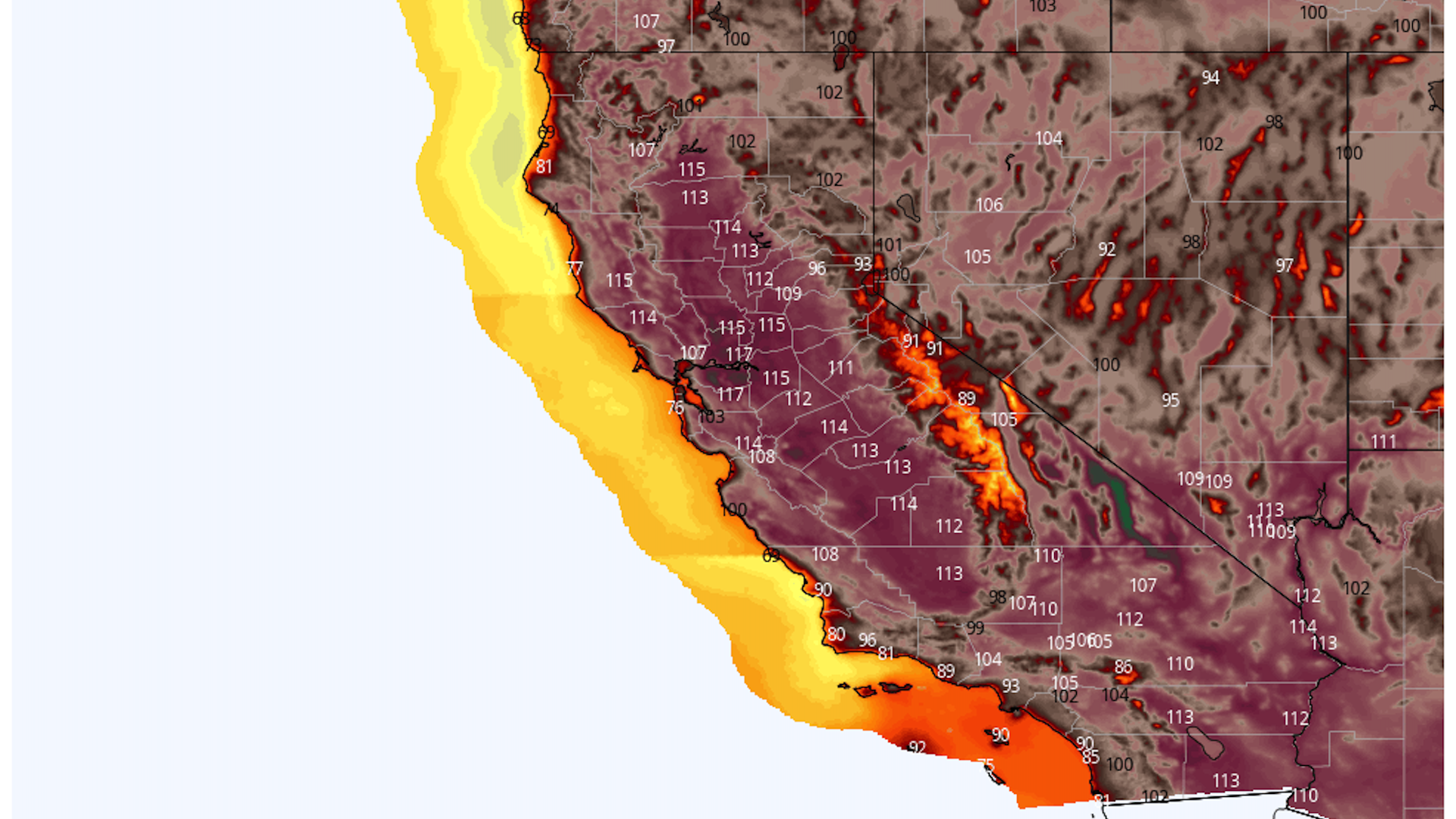| | | | | | | | | | | Axios Generate | | By Ben Geman and Andrew Freedman · Sep 06, 2022 | | 🥞 Welcome back! Today's newsletter, edited by Mickey Meece, has a Smart Brevity count of 1,232 words, 5 minutes. 📬 Did a friend send you this newsletter? Welcome, please sign up. 🎶 And happy birthday to the late Dolores O'Riordan of the Cranberries, a voice gone too soon that animates today's intro tune... | | | | | | 1 big thing: Europe races to ease crisis as Russia crimps gas flows |  | | | Illustration: Brendan Lynch/Axios | | | | European officials are scrambling to shield residents and industries from sky-high energy costs and tight supplies as Russia signals that it will further curtail natural gas exports, Ben writes. Catch up fast: Russia is for now declining to restart the Nord Stream gas pipeline, a critical artery into Europe. "This latest move has significantly increased the risk that Europe may not get further gas flows through Nord Stream 1 for the whole winter," the firm Rystad Energy said in a note this morning. Why it matters: It's just the latest factor prompting European officials to expand existing aid to energy companies and consumers amid the surge in power and gas prices, and ready imminent plans to overhaul the market. - Two big examples: Germany announced a $65 billion aid package Sunday to help consumers. New UK Prime Minister Liz Truss "is finalizing plans for a £40 billion ($46 billion) support package to lower energy bills for UK businesses," Bloomberg reports.
- More broadly, via the Financial Times: "Energy companies across Europe are turning to governments to bolster their liquidity and secure supplies, as the gas crisis stoked by Russia's war against Ukraine tests their ability to stay afloat."
What we're watching: The bloc's energy ministers will hold a key meeting Friday as officials float a range of ideas. European Commission president Ursula von der Leyen tweeted that goals include a cap on prices for Russian pipelined gas; steps to ease energy demand peaks; using energy sector revenues to help vulnerable consumers and businesses; and efforts to ease volatility. Zoom in: Reuters saw a draft document prepared by the Czech Republic, which holds the rotating EU presidency. Proposals include "temporarily removing gas power plants from the current EU system of setting electricity prices," and a "'pan-European credit line support' for energy market participants facing very high margin calls." |     | | | | | | Bonus: Charting Europe's price pain |  Data: Intercontinental Exchange; Chart: Axios Visuals European natural gas prices surged yesterday on the news that Russia would not resume supplies through the Nord Stream pipeline, Ben writes. Why it matters: The benchmark Dutch TTF contract, seen above in euros, traded at all-time highs earlier this summer. Prices eased back to the €220 per megawatt hour range today; a year ago they were roughly €30. |     | | | | | | 2. Heat wave shatters record and threatens grid |  | | | Forecast high temperatures for Tuesday via the National Weather Service. (Weatherbell.com) | | | | A historic, climate change-fueled heat wave is roasting large parts of the West, Andrew writes. The big picture: An unusually strong heat dome is parked over the western U.S., causing more than a week of record-setting temperatures. Threat level: Yesterday, California ISO, the state's grid operator, declared a Stage 2 emergency, switching on emergency generating capacity as demand threatened to exceed supply. - Grid management may be more difficult today, with a forecast for record power demand. A Flex Alert is in effect for a seventh-straight day, calling on residents to conserve energy between 4 and 10pm PT.
- California ISO says it needs two to three times the voluntary load reductions seen in the past few days to avoid rotating power outages.
By the numbers: Here are a few of yesterday's notable records in California: 112°F: High in Stockton, setting a monthly record. 114°F: High at Sacramento Executive Airport, smashing the old monthly record of 109°F, set just two years ago. 115°F: High Vacaville, beating the old monthly record by 3°F. 117°F: High in Fairfield, setting an all-time record. Context: Heat waves are becoming more common, more intense and longer-lasting due to human-caused global warming. Some studies, in fact, have shown that certain extreme heat events would have been virtually impossible without the climate change component. What we're watching: The heat may peak today, with Sacramento making a run at 115°F. |     | | | | | | A message from Chevron | | At Chevron, we're working to keep up with growing energy demand | | |  | | | | Chevron is increasing U.S. production to keep up with growing energy demand. By the end of this year, we plan to increase our oil and natural gas production in the Permian Basin by 15% over 2021 levels. And we're expected to reach 1 million barrels of oil per day by 2025. Learn more about our efforts. | | | | | | 3. What's ahead for Biden's revamped climate team |  | | | Photo illustration: Brendan Lynch/Axios. Photo: Drew Angerer/Getty Images | | | | The White House is overhauling its climate roster as officials look to implement the new energy law and, potentially, face tougher oversight from Congress, Ben writes. ICYMI: Veteran Democratic insider John Podesta is returning to the White House as senior adviser for "clean energy innovation and implementation," the White House said Friday. - He was chief of staff to former President Clinton and later served as a top climate adviser to President Obama.
- Meanwhile, top domestic climate adviser Gina McCarthy is stepping down this month and will be succeeded by Ali Zaidi, her deputy.
Quick take: Policy power remains centered in the White House as officials try to implement $370 billion worth of clean energy and climate investments. A key early focus will be translating new and extended tax breaks into specific IRS guidance. The intrigue: If the GOP regains one or both chambers of Congress, look for Republican lawmakers to launch probes into the spending. Podesta told The Washington Post that success is "going to take a huge effort by the federal government to get this going, get it going fast but get it going in a way that avoids waste and controversy." |     | | | | | | 4. Study finds signs of Paris Agreement's success |  | | | Illustration: Aïda Amer/Axios | | | | The more ambitious a country's emissions reduction targets are, the more credible experts are likely to view them, according to a new study, Andrew writes. Why it matters: The study offers up novel evidence that nonbinding emissions reduction pledges work. Zoom in: The research, published in Nature Climate Change, surveyed nearly 830 experts from more than 150 countries, including about 600 climate negotiators, as well as 230 climate scientists. - The goal? To learn more about how experts in different fields and parts of the world assess emissions pledges.
- The findings provide evidence that the Paris Agreement is encouraging countries to commit to more aggressive emissions cuts.
Between the lines: The researchers found that experts view the emissions targets of the European Union as the world's most ambitious and credible. - The conclusion that the countries with the boldest targets are also the most credible shows the agreement is succeeding, the researchers conclude, since it was designed to encourage diplomatic one-upmanship.
- "This result is among the first systematic evidence that the core logic of the Paris Agreement is working," the study states.
The intrigue: The study also found that climate scientists are tougher to please, and tend to be more pessimistic about countries' compliance with commitments. - They view targets through the geophysical lens of what is necessary, rather than what is politically achievable.
|     | | | | | | 5. 🏃🏽♀️Catch up fast on oil and gas | | 🧢 G7 efforts to impose a cap on Russian oil prices are facing headwinds as China and India, two key buyers of Russian barrels, decline to endorse it, Ben writes. - Mao Ning, a spokesperson for China's foreign ministry, at a briefing yesterday said they hope "relevant countries will make constructive efforts to help ease the situation through dialogue and consultation, instead of doing the opposite."
Meanwhile, India's petroleum minister tells CNBC only that they will examine the plan "carefully." 🤝 EQT Corp., the huge U.S. natural gas producer, is in "advanced talks" to buy privately held producer THQ Appalachia I LLC and associated pipeline infrastructure in a $4 billion deal, Reuters reports. ✂️ ICYMI: OPEC, Russia and allied producers agreed yesterday to cut combined output by 100,000 barrels per day in October, a small but symbolic sign the cartel wants to ward off more price declines. |     | | | | | | 6. Quote of the day | | "There is so much loss and damage with so little reparations to countries that contributed so little to the world's carbon footprint that obviously the bargain made between the global north and global south is not working." — Sherry Rehman, Pakistan's climate minister, via The Guardian. Her comments come as Pakistan is reeling from unprecedented, fatal flooding. United Nations climate talks in November will focus on proposals to compensate poor nations for harms they've had little role in causing. |     | | | | | | A message from Chevron | | At Chevron, we're working to keep up with growing energy demand | | |  | | | | Chevron is increasing U.S. production to keep up with growing energy demand. By the end of this year, we plan to increase our oil and natural gas production in the Permian Basin by 15% over 2021 levels. And we're expected to reach 1 million barrels of oil per day by 2025. Learn more about our efforts. | | | | 🙏Thanks for reading and we'll see you back here tomorrow. |  | | Why stop here? Let's go Pro. | | | | | | Axios thanks our partners for supporting our newsletters. If you're interested in advertising, learn more here.
Sponsorship has no influence on editorial content. Axios, 3100 Clarendon Blvd, Arlington VA 22201 | | | You received this email because you signed up for newsletters from Axios.
Change your preferences or unsubscribe here. | | | Was this email forwarded to you?
Sign up now to get Axios in your inbox. | | | | Follow Axios on social media:    | | | | | |









No comments:
Post a Comment